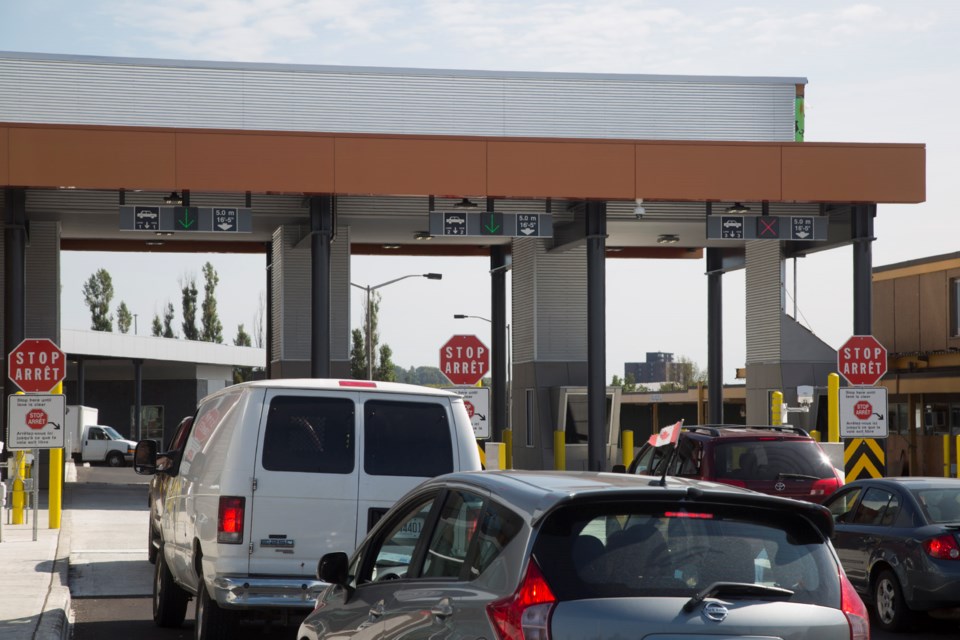The federal government has released a timeline of when stricter measures will come into play at Canada's land borders.
As of Monday, all travellers will be required to show proof of a negative COVID-19 molecular test result taken in the United States within 72 hours of pre-arrival.
Travellers who have previously tested positive for COVID-19 must provide proof of a positive COVID-19 molecular test conducted between 14 and 90 days prior to departure, instead of a negative COVID-19 molecular test.
As of Feb. 22, travellers will be required to take a COVID-19 molecular test upon arrival, as well as toward the end of their 14-day quarantine.
Health officials have stressed that exceptions will be made for essential workers such as truckers and emergency workers.
In terms of air travel, starting Feb. 22, all travellers (with some exceptions) will be required to take a COVID-19 molecular test when they arrive in Canada before exiting the airport. They will also be required to take one toward the end of their 14-day quarantine period.
All travellers, whether arriving by land or air will be required to submit their travel and contact information, including a suitable quarantine plan, electronically via ArriveCAN before crossing the border or boarding a flight as of Feb. 22, 2021.
With limited exceptions, air travellers will also be required to reserve, prior to departure to Canada, a three-night stay in a government-authorized hotel. Travellers will be able to book their government-authorized stay starting this coming Thursday.
The cost of a test and 72-hour stay at a government approved facility will come at the cost of travellers, feds say.
The federal government is reminding Canadians that those who do not present a valid COVID-19 molecular test will be allowed entry but may be subject to a fine of up to $3,000 per day or face criminal prosecution.
Travellers may also be required to go to a designated quarantine facility if they are symptomatic on arrival at the border, or do not have a suitable quarantine plan.
Foreign nationals on the other hand, who have obtained an exemption to enter Canada, will be refused entry with limited exceptions if they do not have a valid COVID-19 molecular test result.
These new measures are in addition to existing mandatory pre-boarding and health requirements for air travellers.
The federal government cites concerns about variants reaccelerating the pandemic.
On Jan. 12, Prime Minister Justin Trudeau announced a 30-day extension of the Canada-U.S. travel restrictions. It is set to expire on Feb. 21.
Land border restrictions have been in place for non-essential travel since mid-March 2020 due to the ongoing pandemic.
